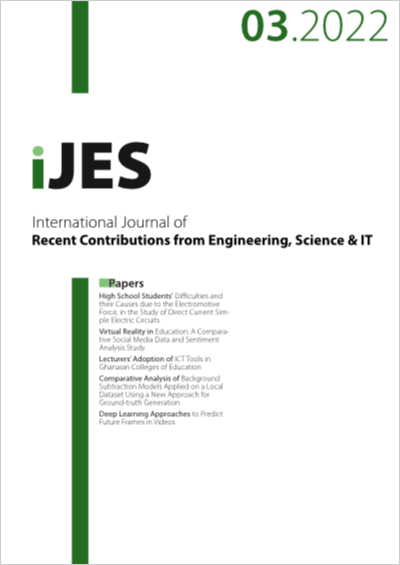Virtual Reality in Education: A Comparative Social Media Data and Sentiment Analysis Study
DOI:
https://doi.org/10.3991/ijes.v10i03.34057Keywords:
Virtual reality, Extended reality, Education, Social media, Data analysis, Sentiment analysis, Data mining, Educational technology, Immersive learning, Technology-enhanced learningAbstract
It is essential to consider the public’s viewpoints when it comes to significant issues, such as the adoption and integration of technologies in education. This study aims at analyzing and comprehending the public’s perspectives, sentiments and attitudes towards the use of virtual reality in general and in educational settings. After setting the necessary data requirements, 10,457,344 related tweets from Twitter were identified and retrieved. The data was then analyzed using text mining and sentiment analysis. Based on the results, the public positively perceived the use of virtual reality and mostly expressed emotions of anticipation, trust and joy when referring to its use in education. Finally, the role of virtual reality as an effective educational tool that can enhance students’ engagement, motivation and academic performance was highlighted.
Downloads
Published
How to Cite
Issue
Section
License
Copyright (c) 2022 Georgios Lampropoulos, Euclid Keramopoulos

This work is licensed under a Creative Commons Attribution 4.0 International License.
The submitting author warrants that the submission is original and that she/he is the author of the submission together with the named co-authors; to the extend the submission incorporates text passages, figures, data or other material from the work of others, the submitting author has obtained any necessary permission.
Articles in this journal are published under the Creative Commons Attribution Licence (CC-BY What does this mean?). This is to get more legal certainty about what readers can do with published articles, and thus a wider dissemination and archiving, which in turn makes publishing with this journal more valuable for you, the authors.
By submitting an article the author grants to this journal the non-exclusive right to publish it. The author retains the copyright and the publishing rights for his article without any restrictions.
This journal has been awarded the SPARC Europe Seal for Open Access Journals (What's this?)


